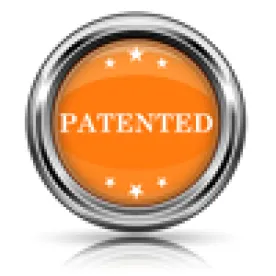Takeaway: In determining whether a dismissal without prejudice of the first case has the effect as if the first case never existed in the context of the bar under 35 U.S.C. § 325(a)(1), a dispositive factor is whether the first action is immediately continued into the second action, including the legal positions taken by the parties.
In its Decision, the Board denied covered business method patent review of all of the challenged claims of the ’304 Patent and the ’132 Patent. The Board found that Petitioner is barred by 35 U.S.C. § 325(a)(1).
In August 2005, Petitioner filed a complaint for declaratory judgment in the U.S. District Court for the District of Colorado (“Colorado DJ Action”) against Patent Owner alleging invalidity of all claims of the ’304 and ’132 Patents. Two days later, Patent Owner sued Petitioner for infringement of the ’304 and ’132 Patents in the Northern District of Illinois (“Illinois Infringement Action”). Both parties moved to transfer the lawsuits to their preferred jurisdiction, and in September 2006, the Colorado DJ Action was transferred to Illinois. In November 2006, the Patent Owner submitted a Proposed Minute Order that was agreed to by Petitioner to the judge presiding over the Illinois Infringement Action requesting that the Colorado DJ Action be dismissed without prejudice, and granting Petitioner leave to file an amended answer, affirmative defenses, and counterclaims in the Illinois Infringement Action. Instead of issuing this order, the judge issued three separate orders: (1) reassigning the Colorado DJ Action to the judge presiding over the Illinois Infringement Action; (2) dismissing the Colorado DJ Action without prejudice pursuant to the agreement of the parties; and (3) granting Petitioner leave to file an amended answer, affirmative defenses, and counterclaim in the Illinois Infringement Action. The Illinois Infringement Action is still pending and has not been stayed.
The Board first reviewed the law regarding covered business method patent review, noting that the covered business method patent review proceedings employ the same standards and procedures as a post-grant review. Therefore, the Board found that a covered business method patent review is governed by the requirements of 35 U.S.C. § 325(a)(1), which bars review if the petitioner has previously filed a civil action challenging the validity of a claim of the patent.
Petitioner argued that because the Colorado DJ Action was dismissed without prejudice, it is as if it never existed, citing several Board and Federal Circuit decisions. Patent Owner stated that the dismissal without prejudice should not be treated as if they never existed because the claims from the Colorado DJ Action effectively continued in the Illinois Infringement Action. The Board cited to its decision in Apple v. Rensselaer Polytechnics Institute, IPR2014-00319, Paper 12 (PTAB June 12, 2014), stating that the dispositive factor for determining that a dismissal without prejudice of the first case does not have the effect as if the first case never existed is that the first action is immediately continued into the second action, including the legal positions taken by the parties. The Board then found that the actions of the Illinois Court allowed continuation of the claims made in the Colorado DJ Action by “agreement of the parties.” Therefore, the Board agreed with Patent Owner that it was as if the claims from the Colorado DJ Action continued into the Illinois Infringement Action.
CQG, Inc. and CQGT, LLC v. Trading Technologies International, Inc., CBM2015-00057; CBM2015-00058
Paper 12: Decision Denying Institution of Covered Business Method Patent Review
Dated: July 10, 2015
Patents 6,766,304 B2; 6,772,132 B2
Before: Sally C. Medley, Meredith C. Petravick, and Philip J. Hoffmann
Written by: Medley



 />i
/>i

